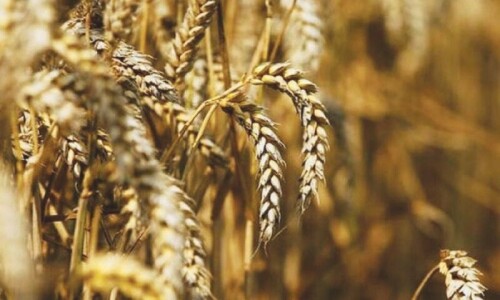LANDI KOTAL: The continuous ban on the import of livestock from Afghanistan via the Torkham border has led to the closure of six of the total 10 restaurants offering traditional mutton tikka and karahi food in Landi Kotal bazaar of Khyber tribal district.
The restaurateurs told Dawn that the acute shortage of sheep and hike in mutton price had forced them to shutter eateries and thus, denying regular customers the food of their choice.
They said the four local restaurants, which continued to operate, had curtailed the sale of mutton-based food by almost 80 per cent as the local livestock market failed to meet their demand for quality mutton for which local barbeque and mutton karahi had earned nationwide fame.
Islam Yar, a chef at a local restaurant, said he had to turn down many orders though very reluctantly due to the shortage of quality mutton and high prices.
He said his employer slaughtered 18-20 sheep daily before the livestock import ban was imposed but the number had dropped to just three to four.
Owners complain about acute sheep shortage, mutton price hike
“We finish our job by 11am compared to our dawn-to-dusk operation prior to the ban,” he said.
Restaurateur Haji Dadeen said the livestock transportation from Afghanistan, both legal and illegal, had completely stopped due to high cost and long distances.
He said he and some other livestock dealers had brought Afghan sheep from Qandahar via the Chaman border but it had cost him dearly due to the excessive transportation charges and death of some animals due to hot and humid weather.
The restaurateur said the illegal sheep business via the Tabai-Bazaar Zakhakhel border had stopped as the local peace committee, which was supported by the local administration, demanded a high price for using their territory for illegal import.
The situation is no different at the food street established in the Wazir Dhand Market of Jamrud.
Restaurant owner Bacha Qasab said though no eatery had closed down, most owners had massively curtailed sheep slaughter due to acute shortage. He said the tikka and karahi made from Afghan sheep was popular among customers but that sheep had almost vanished from the market.
“We use meat of three to four animals daily compared to 14 and 15 in the past,” he said.
The restaurateur said a number of waiters working in Wazir Dhand Food Street and Landi Kotal had lost job due to a slum in business.
Haji Dadeen, who along with some other livestock dealers was instrumental in getting the ban lifted prior to Eidul Azha, said he was at a loss to understand the rationale for ban and said the livestock import could generate huge revenue in the shape of customs duty on the Torkham border.
The livestock dealers said they were willing to pay full duty and abide by all rules if livestock import from Afghanistan was allowed. The custom officials acknowledged the loss of revenue due to the ban but didn’t disclose the actual reason for it.
Published in Dawn, August 31st, 2019












































Dear visitor, the comments section is undergoing an overhaul and will return soon.